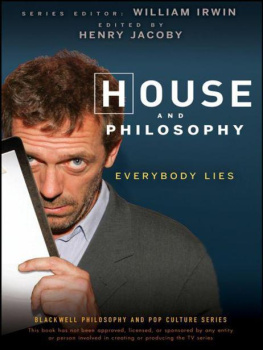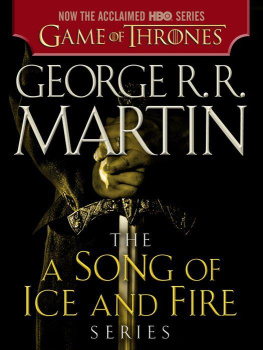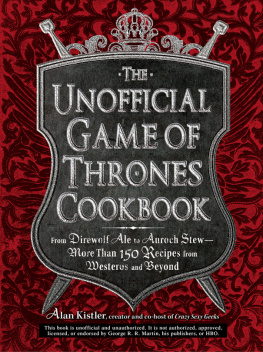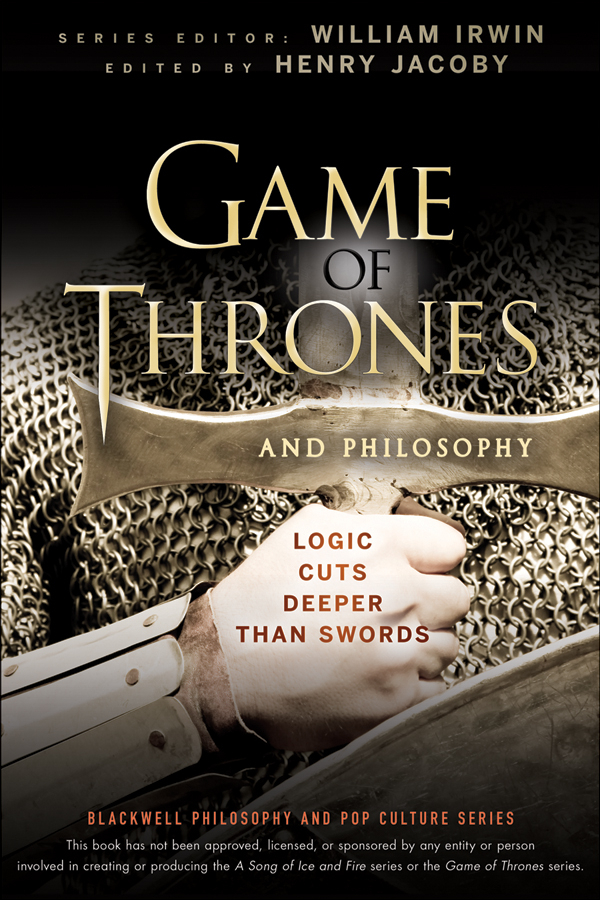CONTENTS
.

The Blackwell Philosophy and Pop Culture Series
Series Editor: William Irwin
24 and Philosophy
Edited by Jennifer Hart Weed, Richard Davis, and Ronald Weed
30 Rock and Philosophy
Edited by J. Jeremy Wisnewski
Alice in Wonderland and Philosophy
Edited by Richard Brian Davis
Arrested Development and Philosophy
Edited by Kristopher Phillips and J. Jeremy Wisnewski
The Avengers and Philosophy
Edited by Mark D. White
Batman and Philosophy
Edited by Mark D. White and Robert Arp
Battlestar Galactica and Philosophy
Edited by Jason T. Eberl
The Big Bang Theory and Philosophy
Edited by Dean Kowalski
The Big Lebowski and Philosophy
Edited by Peter S. Fosl
The Daily Show and Philosophy
Edited by Jason Holt
Family Guy and Philosophy
Edited by J. Jeremy Wisnewski
Final Fantasy and Philosophy
Edited by Jason P. Blahuta and Michel S. Beaulieu
Game of Thrones and Philosophy
Edited by Henry Jacoby
The Girl with the Dragon Tattoo and Philosophy
Edited by Eric Bronson
Green Lantern and Philosophy
Edited by Jane Dryden and Mark D. White
Heroes and Philosophy
Edited by David Kyle Johnson
House and Philosophy
Edited by Henry Jacoby
The Hunger Games and Philosophy
Edited by George Dunn and Nicolas Michaud
Inception and Philosophy
Edited by David Johnson
Iron Man and Philosophy
Edited by Mark D. White
Mad Men and Philosophy
Edited by James South and Rod Carveth
Metallica and Philosophy
Edited by William Irwin
The Office and Philosophy
Edited by J. Jeremy Wisnewski
South Park and Philosophy
Edited by Robert Arp
Spider-Man and Philosophy
Edited by Jonathan Sanford
Terminator and Philosophy
Edited by Richard Brown and Kevin Decker
True Blood and Philosophy
Edited by George Dunn and Rebecca Housel
Twilight and Philosophy
Edited by Rebecca Housel and J. Jeremy Wisnewski
The Ultimate Harry Potter and Philosophy
Edited by Gregory Bassham
The Ultimate Lost and Philosophy
Edited by Sharon Kaye
Watchmen and Philosophy
Edited by Mark D. White
X-Men and Philosophy
Edited by Rebecca Housel and J. Jeremy Wisnewski
Copyright 2012 by John Wiley & Sons. All rights reserved
Published by John Wiley & Sons, Inc., Hoboken, New Jersey
Published simultaneously in Canada
No part of this publication may be reproduced, stored in a retrieval system, or transmitted in any form or by any means, electronic, mechanical, photocopying, recording, scanning, or otherwise, except as permitted under Section 107 or 108 of the 1976 United States Copyright Act, without either the prior written permission of the Publisher, or authorization through payment of the appropriate per-copy fee to the Copyright Clearance Center, 222 Rosewood Drive, Danvers, MA 01923, (978) 750-8400, fax (978) 646-8600, or on the web at www.copyright.com . Requests to the Publisher for permission should be addressed to the Permissions Department, John Wiley & Sons, Inc., 111 River Street, Hoboken, NJ 07030, (201) 748-6011, fax (201) 748-6008, or online at http://www.wiley.com/go/permissions .
Limit of Liability/Disclaimer of Warranty: While the publisher and the author have used their best efforts in preparing this book, they make no representations or warranties with respect to the accuracy or completeness of the contents of this book and specifically disclaim any implied warranties of merchantability or fitness for a particular purpose. No warranty may be created or extended by sales representatives or written sales materials. The advice and strategies contained herein may not be suitable for your situation. You should consult with a professional where appropriate. Neither the publisher nor the author shall be liable for any loss of profit or any other commercial damages, including but not limited to special, incidental, consequential, or other damages.
For general information about our other products and services, please contact our Customer Care Department within the United States at (800) 762-2974, outside the United States at (317) 572-3993 or fax (317) 572-4002.
Wiley also publishes its books in a variety of electronic formats and by print-on-demand. Some content that appears in standard print versions of this book may not be available in other formats. For more information about Wiley products, visit us at www.wiley.com .
ISBN 978-1-118-16199-9 (paper); ISBN 978-1-118-20605-8 (ebk);
ISBN 978-1-118-20606-5 (ebk); ISBN 978-1-118-20607-2 (ebk)
FOREWORD
Elio M. Garcia and Linda Antonsson
The man who passes the sentence should swing the sword.
Love is the bane of honor, the death of duty.
When you play the game of thrones, you win or you die.
With phrases like these, George R. R. Martins A Game of Thrones reveals not only a powerful sense of drama, a rich setting, and complex characters, but an understanding that at the heart of his storyof any great storylies conflict. Martin often cites William Faulkners statement that the only story worth telling is that of the human heart in conflict with itself, and that conflict appears again and again throughout the Song of Ice and Fire series in a way that seemed unprecedented in the epic fantasy genre back in 1996 when the first novel was published. Whether the conflict entailed one lonely, misshapen dwarfs efforts to survive in a society that looks down on him, a friends struggle to keep an irresponsible king on his throne, or a mothers choice between her family and her duty, Martin presented the moral complexity of people and societies that breathed reality. Though inspired by the likes of J. R. R. Tolkienfather of the epic fantasyMartin took a different path, and opened the door for a wave of new writers who explore characters and settings with an eye toward the darker side of human nature and society.
When it was announced that George R. R. Martins series of fantasy novels, A Song of Ice and Fire, would be adapted by HBO in Game of Thrones , it caused a great deal of excitement and speculation among fans who had been following the saga for a decade. Casting, budgets, shooting locations, special effectsthese subjects and more were up for discussion. Yet at the heart of all of these questions was a single, overriding concern for most fans: How much fidelity would the show maintain to Martins novel, not only in terms of plot and characters, but in tone and themes? The first season came and went, and now we know that the producers largely stayed faithful on all levels, weaving together a drama that combined elements of the heroic epic with a moral scale that covered the range from the saintly to the monstrous.
Readers often cite the moral complexity of the novels as being a key part of their enjoyment, alluding to characters painted in shades of gray. Previous works of epic fantasy tended to operate with a straightforward moral compass where the antagonist was some variety of evil Dark Lord and the protagonists were defined by their opposition to this evil character based on their obvious moral goodness. In contrast, Martins series has been written with no dark lord to speak of, instead focusing the narrative on the dynastic conflicts that rend the Seven Kingdoms apart beneath the shadow of a looming catastrophe. That catastrophe may be created by nefarious creatures and it may be the ultimate end point of the narrative, but Martins choice to keep his eyes on the very human characters, with their very human flaws, was done well enough to win him legions of fans who appreciated the so-called gritty realism of the narrative.









